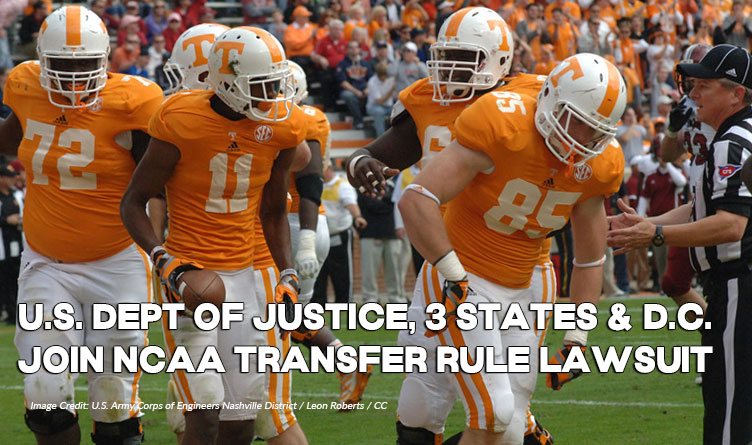Image Credit: U.S. Army Corps of Engineers Nashville District / Leon Roberts / CC
The Center Square [By Jon Styf] –
The U.S. Department of Justice, District of Columbia and the states of Minnesota, Mississippi and Virginia have joined a lawsuit against the National Collegiate Athletic Association attempting to block its transfer rules. The lawsuit now includes 10 states, including Tennessee.

The case is currently on hold until it can be fully heard after the athletic year is completed, with the sides agreeing to continue the current block on transfer rules until after that case is heard and decided.
Ohio is the lead plaintiff while West Virginia serves at the local counsel in the case in West Virginia federal court.
The case attempts to block rules that prevent athletes who transfer a second time from immediately competing for a new school without an NCAA waiver.

The antitrust lawsuit now includes 10 states including Tennessee, North Carolina, Illinois, Colorado and New York.
“We are confident in the merits of our case that the NCAA’s transfer policy is flawed and has failed to maintain a consistent and defensible transfer rule,” West Virginia Attorney General Patrick Morrisey said in a statement. “More states have joined with us along with the DOJ to set the rule straight to reflect fairness for the athletes and adherence to the law.
“The NCAA needs to enact consistent, logical and defensible rules that are fair and equitable for everyone.”

West Virginia initially joined the case after the NCAA denied RaeQuan Battle a transfer waiver so he could play basketball for West Virginia University.
The lawsuit alleges that the NCAA rule goes against Section 1 of the Sherman Act.
It claims the rule “artificially deters players and teams from achieving optimal matches by forcing college athletes to weigh the one-year ineligibility period against the benefits of moving to a better matched school. It is ironic that this rule, stylized as promoting the welfare of college athletes, strips them of the agency and opportunity to optimize their own welfare as they see fit.”


About the Author: Jon Styf, The Center Square Staff Reporter – Jon Styf is an award-winning editor and reporter who has worked in Illinois, Texas, Wisconsin, Florida and Michigan in local newsrooms over the past 20 years, working for Shaw Media, Hearst and several other companies. Follow Jon on Twitter @JonStyf.


